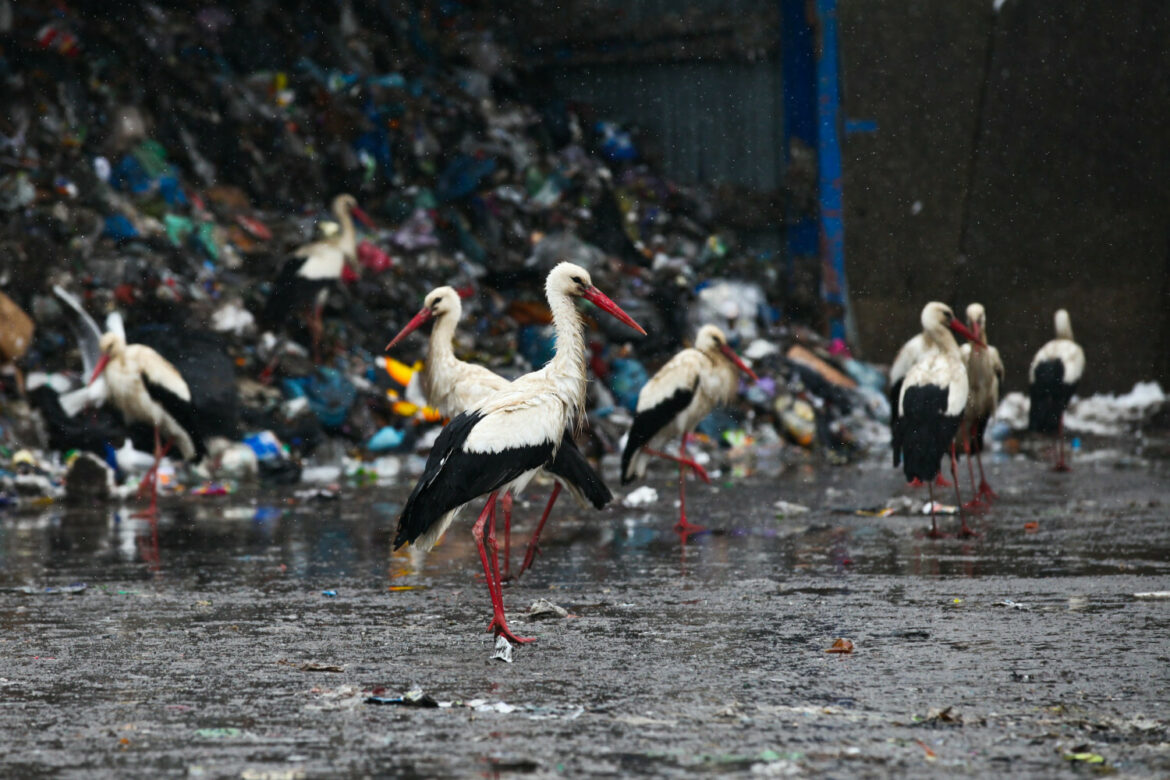Polish scientists have studied the diet of storks. The results of a study of stork sputum (undigested food scraps that storks, like birds of prey and owls, spit out, giving scientists great material to study) have been published in the journal Environmental Science and Pollution Research.
In order to acquire such extensive material, it requires the cooperation of many researchers, but also people who can professionally get into the nest, collect and transport the sputum. Thanks to the efforts of Joachim Siekiera of the Silesiana Group and Dr Kazimierz Walasz of the Malopolska Ornithological Society, as well as a wide range of collaborators and the power companies managing the transmission lines, it was possible to collect sputum from 117 stork nests located in southern and south-western Poland.
Their analysis highlighted a disturbing phenomenon, hitherto described for populations living in highly transformed western European environments. In the diet of more than a third of the breeding pairs studied, artificial waste was found, of which plastic and cigarette filters were the most common.
“In fact, it could be said that our results are truly alarming and point to the widespread problem of pollution by man-made waste, even in rural areas. After all, what the storks eat reflects the state of our environment, and these results are a clear signal that we need to act to reduce pollution in the environment”, says Professor Piotr Tryjanowski of the University of Life Sciences in Poznań.
“If we were to do a street poll asking what the stork eats, the simplest and quickest association would probably be one – frogs. Well, that’s long overdue and not true, because there are simply not enough frogs, and in fact, even under experimental conditions, they are never the storks’ favourite dish. And in the diet of Polish storks, it is, unfortunately, easier to find rubbish than these proverbial frogs”, adds the scientist.
Arkadiusz Słomczyński





